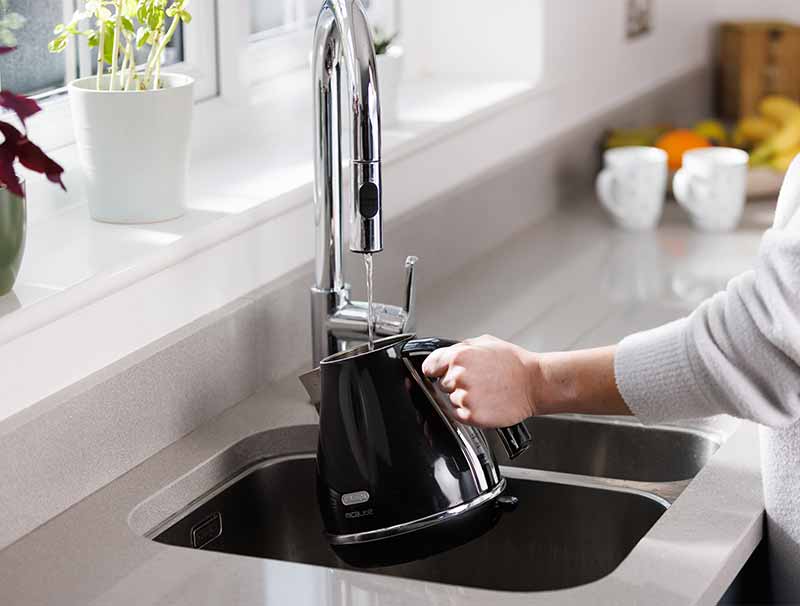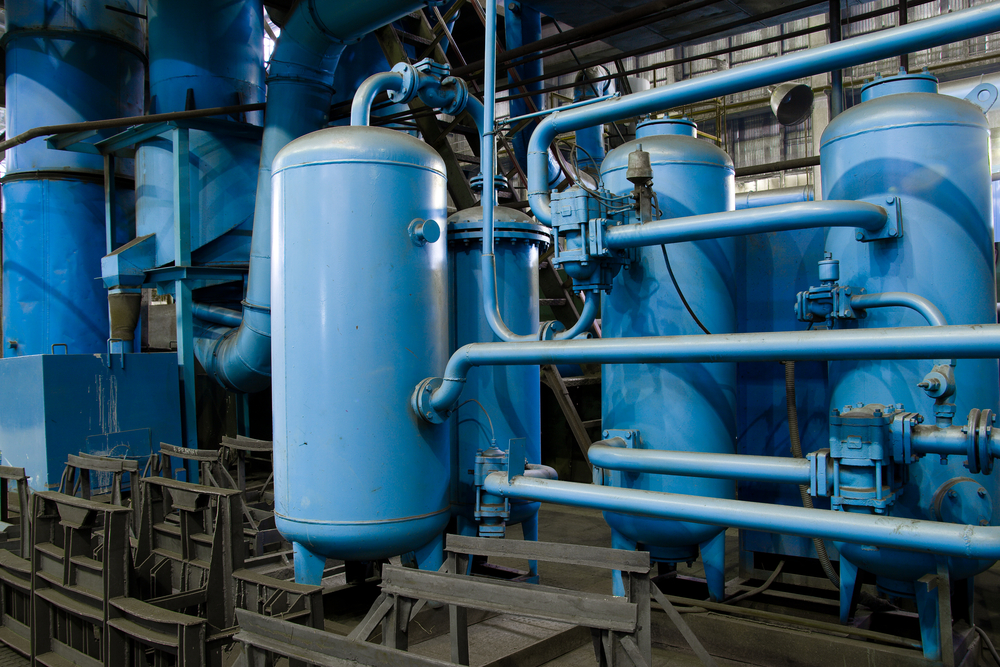Fast Remedies for Dealing with Low Water Pressure in Your Home
Fast Remedies for Dealing with Low Water Pressure in Your Home
Blog Article
Just how do you actually feel when it comes to Dealing with Low Water Pressure in Your Home?

Low water stress in your house can be an irritating problem, impacting every little thing from bathing to cleaning recipes. If you're experiencing weak water circulation, there are several possible causes and remedies to explore. In this guide, we'll talk about typical factors for low tide pressure and sensible steps to resolve the concern successfully.
Introduction to Low Water Pressure
Low water pressure takes place when the circulation of water from your faucets, showers, and other fixtures is weaker than normal. This can make everyday tasks extra challenging and much less efficient. Recognizing the sources of low water pressure is crucial to locating the appropriate solution.
Typical Sources Of Low Water Pressure
Pipe Obstructions
Over time, pipelines can end up being blocked with natural resource, sediment, or particles, restricting the circulation of water. This is an usual issue in older homes with galvanized steel pipes.
Rust
Rust within pipelines can result in leakages and reduced water pressure. Corrosion build-up can restrict water flow, especially in aging plumbing systems.
Faulty Pressure Regulatory Authorities
Pressure regulatory authorities are responsible for preserving consistent water stress in your house. If they malfunction, it can result in low tide stress or irregular circulation throughout your house.
Community Supply Of Water Issues
Sometimes, the problem exists outside your home. Community water problems, such as main line leakages or maintenance work, can briefly reduce water pressure in your location.
How to Identify Low Tide Stress
Examining Faucets and Fixtures
Begin by testing the water pressure at various taps and fixtures throughout your home. If the concern is isolated to particular locations, it might indicate localized issues.
Evaluating Pipes
Check noticeable pipes for signs of leaks, deterioration, or blockages. Focus on any unusual sounds, such as knocking or rattling pipes, which might show concerns within the plumbing system.
Consulting with a Plumber
If you're incapable to pinpoint the source of low tide pressure, take into consideration working with a professional plumber to perform a comprehensive inspection. They can identify underlying problems and recommend ideal solutions.
DIY Solutions to Fix Low Water Pressure
Cleaning Aerators and Showerheads
Natural resources can build up in aerators and showerheads, reducing water flow. Eliminate and clean up these parts on a regular basis to enhance water pressure.
Flushing Water Heater
Debris buildup in the water heater can limit flow and reduce performance. Purging the container periodically aids remove sediment and preserve ideal efficiency.
Inspecting Stress Regulatory Authority
Ensure that the pressure regulatory authority is working correctly. Adjusting or replacing the regulatory authority can help restore correct water pressure throughout your home.
Clearing Up Clogs in Pipeline
For small clogs, attempt utilizing a plumbing serpent or chemical drainpipe cleaner to clear blockages in pipelines. Beware when using chemicals and adhere to security standards.
When to Call a Professional Plumber
If DIY initiatives fall short to fix the issue or if you presume substantial plumbing troubles, it's ideal to look for help from a qualified plumber. They have the competence and devices to attend to intricate concerns safely and efficiently.
Preventive Measures to Maintain Water Pressure
Regular Upkeep
Schedule routine upkeep for your plumbing system to stop issues such as rust, leaks, and clogs. Resolving small troubles early can aid stay clear of more considerable repair services in the future.
Mounting a Pressure Booster
Consider installing a stress booster pump to enhance water pressure in locations with regularly reduced circulation. This can be specifically valuable for multi-story homes or buildings with high-demand fixtures.
Tracking Water Usage
Be mindful of water use habits and avoid overtaxing the plumbing system. Easy adjustments, such as astonishing showers and laundry lots, can aid preserve sufficient water stress.
Verdict
Dealing with low tide stress can be irritating, but identifying the underlying reasons and implementing proper services can recover optimal flow throughout your home. Whether it's cleaning aerators, evaluating pipes, or speaking with a plumber, taking positive steps can guarantee a stable supply of water for your everyday needs.
HOW TO FIX LOW WATER PRESSURE IN YOUR HOUSE (EXPERT GUIDE)
The morning shower lacking any real pressure? Bathtub taking hours to fill? Or maybe you’re dissatisfied with the inadequate performance from your combi boiler?
Then you, like millions of others across the UK, might be experiencing low water pressure.
Fortunately, the good news is that you don’t have to continue living this way. The cause of low water pressure in the home is often quite simple, and you may not even require a plumber to fix the problem.
What causes low water pressure in the house?
If you are experiencing issues with water pressure throughout your home, then you may have one of the problems outlined below.
Most of these problems can be fixed quite easily, but for others, you may need to contact a plumber.
Obstructed Shutoff Valve
If you’ve just bought a new home or recently had building work conducted on your property, there is a chance that your water valves were not fully opened.
If the water valve is partially closed, then you may be restricting the amount of water entering your home. To fix this, simply ensure the valve is fully open.
If the valve appears fully open but you are still encountering reduced water pressure, then the valve may be broken. If this is the case, do not under any circumstances try to fix it without proper training.
Often found under your kitchen sink, a water valve will usually look like a bright yellow handle.
Again, if you believe the water valve is broken, contact a plumber immediately.
Leaks in Your Water Pipes
Leaks are the worst-case scenario when it comes to low water pressure.
If the water pipes are damaged, then this will cause low water pressure, as not all the water will make it to your taps.
After you’ve checked to see if the valve is fully open, you can conduct a leak check of your home. Now, this may seem scary, but it is actually quite simple.
Clogged Water Pipes
Clogged water pipes are one of the most common causes of low water pressure.
These clogs usually build-up when your home is supplied water via iron pipes. Iron is particularly vulnerable to rusting which can then break off and cause an obstruction within your system. You also face the problem of things like dirt, gravel or sand entering creating mineral deposits which further block water flowing from the mains water supply.
Unfortunately, if you suspect that clogged pipes may be restricting your water supply, then you will need to contact a plumber.
In this situation, you will either need to have your pipes removed and cleaned or in more severe cases, you could require a new set of water pipes.
Designer Taps
Designer taps look fantastic, but are they built to be efficient in your plumbing system? Modern taps are built for modern homes and they often have lower flow rates that are specifically designed for use within high-pressure systems.
Install a Water Pressure Booster Pump
If the issue is simply that the mains water pressure supply is too low, the simplest fix is to invest in a booster pump. Found in homes of all shapes and sizes, booster pumps are a relatively cheap option to add extra pressure to your home.
Designed to increase water pressure by passing water into the pump from your mains supply and then ejecting it into your home water system at a higher pressure, a booster pump is a truly simple and effective solution to increasing water pressure.
https://www.anchorpumps.com/blog/the-plumbers-guide-to-fixing-low-water-pressure/

HOW TO FIX LOW WATER PRESSURE IN YOUR HOUSE (EXPERT GUIDE)
The morning shower lacking any real pressure? Bathtub taking hours to fill? Or maybe you’re dissatisfied with the inadequate performance from your combi boiler?
Then you, like millions of others across the UK, might be experiencing low water pressure.
Fortunately, the good news is that you don’t have to continue living this way. The cause of low water pressure in the home is often quite simple, and you may not even require a plumber to fix the problem.
What causes low water pressure in the house?
If you are experiencing issues with water pressure throughout your home, then you may have one of the problems outlined below.
Most of these problems can be fixed quite easily, but for others, you may need to contact a plumber.
Obstructed Shutoff Valve
If you’ve just bought a new home or recently had building work conducted on your property, there is a chance that your water valves were not fully opened.
If the water valve is partially closed, then you may be restricting the amount of water entering your home. To fix this, simply ensure the valve is fully open.
If the valve appears fully open but you are still encountering reduced water pressure, then the valve may be broken. If this is the case, do not under any circumstances try to fix it without proper training.
Often found under your kitchen sink, a water valve will usually look like a bright yellow handle.
Again, if you believe the water valve is broken, contact a plumber immediately.
Leaks in Your Water Pipes
Leaks are the worst-case scenario when it comes to low water pressure.
If the water pipes are damaged, then this will cause low water pressure, as not all the water will make it to your taps.
After you’ve checked to see if the valve is fully open, you can conduct a leak check of your home. Now, this may seem scary, but it is actually quite simple.
Clogged Water Pipes
Clogged water pipes are one of the most common causes of low water pressure.
These clogs usually build-up when your home is supplied water via iron pipes. Iron is particularly vulnerable to rusting which can then break off and cause an obstruction within your system. You also face the problem of things like dirt, gravel or sand entering creating mineral deposits which further block water flowing from the mains water supply.
Unfortunately, if you suspect that clogged pipes may be restricting your water supply, then you will need to contact a plumber.
In this situation, you will either need to have your pipes removed and cleaned or in more severe cases, you could require a new set of water pipes.
Designer Taps
Designer taps look fantastic, but are they built to be efficient in your plumbing system? Modern taps are built for modern homes and they often have lower flow rates that are specifically designed for use within high-pressure systems.
Install a Water Pressure Booster Pump
If the issue is simply that the mains water pressure supply is too low, the simplest fix is to invest in a booster pump. Found in homes of all shapes and sizes, booster pumps are a relatively cheap option to add extra pressure to your home.
Designed to increase water pressure by passing water into the pump from your mains supply and then ejecting it into your home water system at a higher pressure, a booster pump is a truly simple and effective solution to increasing water pressure.
https://www.anchorpumps.com/blog/the-plumbers-guide-to-fixing-low-water-pressure/
I am very intrigued by 10 Reasons for Low Water Pressure in Your House and I really hope you enjoyed the new entry. Appreciated our piece? Please share it. Help others discover it. Thanks so much for taking the time to read it.
Quote & Schedule Report this page